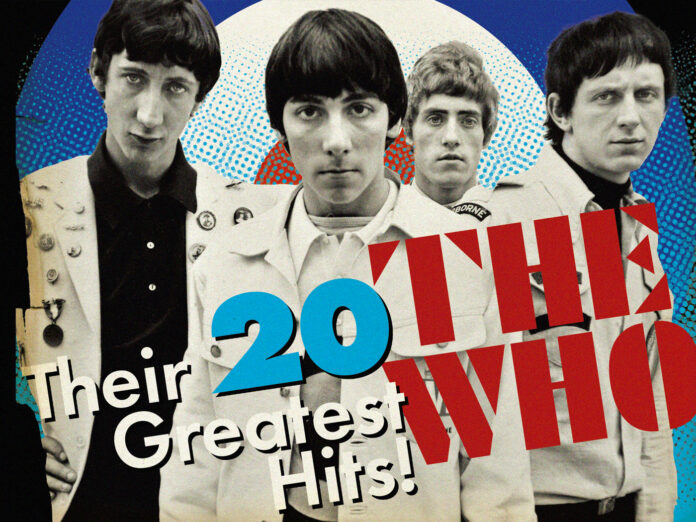Dogs (Townshend)
Producer: Kit Lambert
B-side: Call Me Lightning (Townshend)
Released: June 1968
Highest UK chart position: 25
1968 would be The Who’s wilderness year. It was a worrying 12 months of taking stock after the lukewarm reception to The Who Sell Out that began with a disastrous tour of Australia and New Zealand with The Small Faces; a band whose style Townshend would attempt to emulate on their next single, “Dogs”.
Recorded the same month that Marriott and Lane’s “Lazy Sunday” went Top 10 in the UK, the song was cut from the same cloth of mockney music-hall; a love story set among the debris of lost betting slips at White City’s dog track, complete with Goons-like comedy voices and lyrics celebrating a working-class diet of meat pies and beer.
Virtually disowned by the group since, “Dogs” is still three minutes of whimsical yet imaginatively arranged mod Vaudeville (Moon’s tumultuous rhythm is vintage Who), although its poor chart performance – their first legitimate 45 not to go Top 10 – was illustration enough of their pre-Tommy rut.
A musically unrelated instrumental sequel, “Dogs Part 2”, later became the B-side of “Pinball Wizard”, credited to Messrs Moon, Towser and Jason; the latter two ‘composers’ being Townshend and Entwistle’s actual mutts.
Daltrey: “ ‘Dogs’? Oh… [buries face in hands]… shit! That’s just bizarre. Actually, I’ll tell you what it is, it’s just Pete’s tribute to Ronnie Lane. He was such a lovely geezer, Ronnie, they were great guys, The Faces, all of them. But I think it’d have been better if Pete had just given the song to Ronnie in the first place. As a Who record, it was all a bit frivolous for me.”
________________________
Magic Bus (Townshend)
Producer: Kit Lambert
B-side: Dr Jekyll & Mr Hyde (Entwistle)
Released: September 1968
Highest UK chart position: 26
https://www.youtube.com/watch?v=bl9bvuAV-Ao
Like “Dogs”, The Who’s only other new release during 1968 – “Magic Bus” – seemed trivial. Salvaged from a demo Townshend had cut circa “My Generation” three years earlier, it was also scraping the barrel of their dwindling resources. However, the song’s inherent R’n’B simplicity – anchored in ⌦an archetypal Bo Diddley beat with a contrived bartering patter between Daltrey and Townshend likewise inspired by Diddley’s 1958 jivin’ rap prototype “Say Man” – would work well in concert. As captured on 1970’s Live At Leeds, “Magic Bus” became the unlikely focal point for future Who performances, much to the chagrin of Entwistle, who found his repetitious monophonic bassline an unchallenging chore.
With its quasi-psychedelic lyrical imagery evoking Ken Kesey and the Merry Pranksters’ 1964 pan-American pilgrimage in a customised Harvester school bus, it’s surprising that the single failed to make a bigger impact upon the post-Pepper, pre-Woodstock charts on either side of the Atlantic in a year when LSD-spiked trippiness was fast becoming valuable pop currency.
Regardless, Townshend was by now too preoccupied with more spiritual matters to care about this, their second successive chart failure. A changed man after being introduced to the teachings of the mystic Indian guru Meher Baba, as “Magic Bus” hit the shops Townshend was already putting The Who through their paces with the grandiose musical designs for his ‘rock opera’, provisionally titled “The Deaf, Dumb & Blind Boy”. The Who’s permanent recovery was but a pinball table’s tilt away…
Daltrey: “D’you know I can’t even remember recording ‘Magic Bus’. I must have been stoned on something! I don’t have a lot to say about that song but it’s strange, the fans love it because it’s a Bo Diddley riff, and that always worked. But I know John did find it very tedious.”



